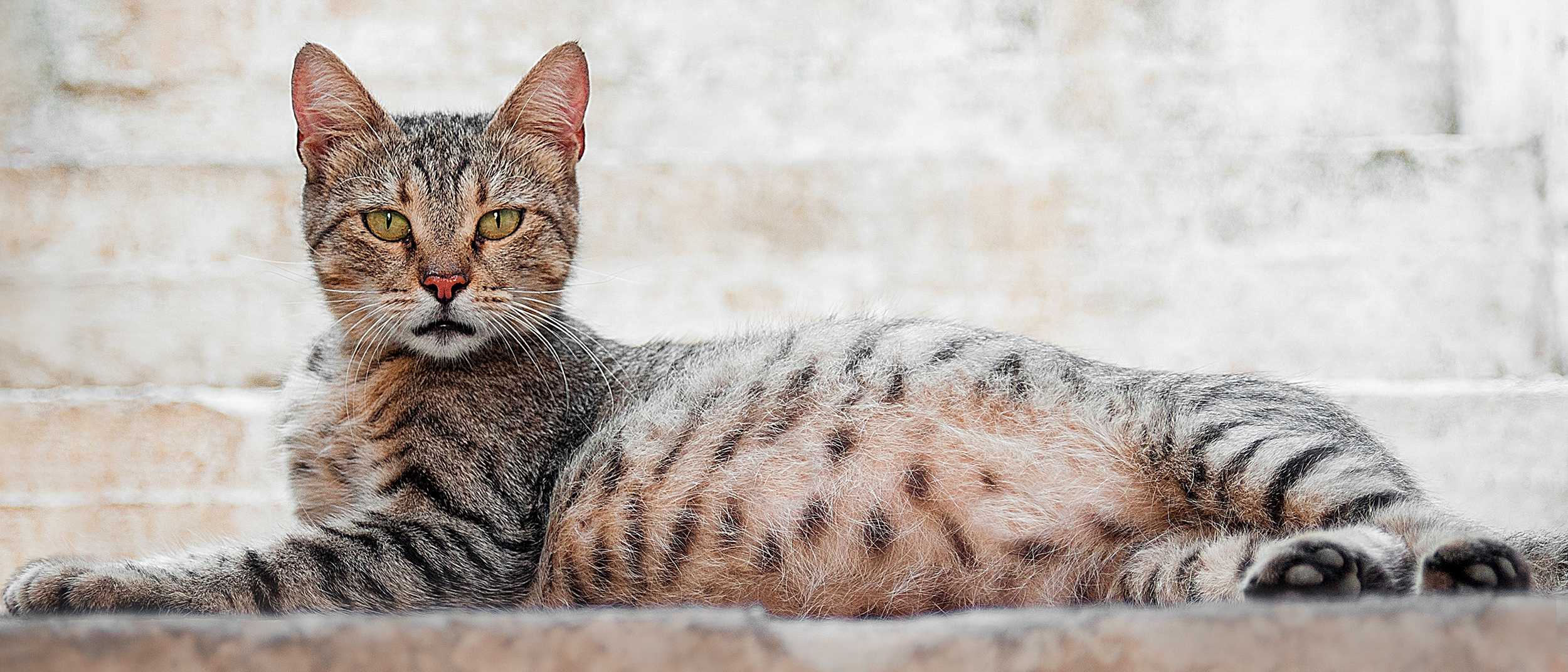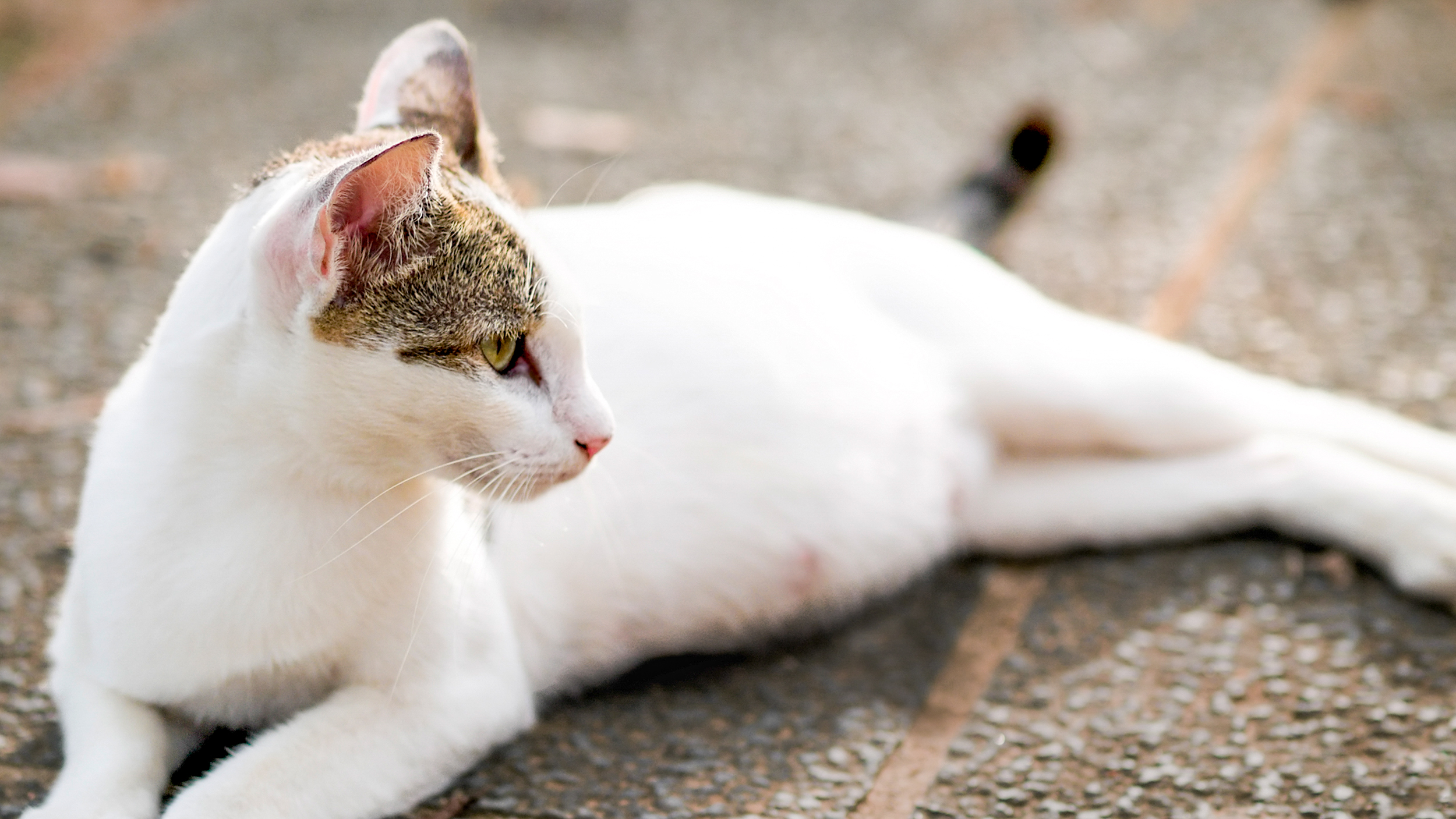How to care for your pregnant cat
Article

What happens during your cat's pregnancy
The average cat pregnancy lasts 64 days. Your queen (another term for a pregnant cat) will gain fat throughout gestation to sustain lactation. She will also gain weight from the growth of the embryos.
The best way for your queen to get the nutrients and weight increase she needs to support the birth and nursing of her kittens is through an energy-dense diet, but this should be monitored carefully to avoid unnecessary weight gain.
Weight management of your pregnant cat
Although your pregnant cat is increasing in size during the first two-thirds of gestation, she shouldn't gain more than 40% of her ideal weight. Obesity can lead to complications in the delivery of the kittens, as well as long-term health problems for your cat. Therefore, choosing the right food and feeding your pregnant cat in the right way is essential to protect her health and the health of the newborns.
Regularly weigh your cat and adjust her food portions if required; this will help her to avoid gaining too much weight during the pregnancy.
What to feed your pregnant cat
Starting at the beginning of her pregnancy, you should care for your pregnant cat by feeding her an energy-dense diet, specifically designed to support gestation and, later, the production of milk to feed her kittens. You should transition to a food such as Royal Canin's Mother and Babycat Dry Cat Food, which is formulated for the specific needs of growing baby kittens and their queens.

As your cat progresses through her pregnancy, her energy requirements will increase by around 10% every week. By the final stages of gestation, she'll need up to 1.5 times the amount of food she normally eats. An energy-dense food can help with this without adding unnecessary bulk to her food, which could be difficult to digest.
You should continue to feed her using the same routine that you've already established: at specific times of the day and in a specific place but with increased amounts of her food. Make sure there is plenty of water available for her too.
Changing your pregnant cat's food
Switch her onto this food progressively by mixing it with her existing food, using the following schedule:
Day 1 & 2 - 75% previous food + 25% new food
Day 3 & 4 - 50% previous food + 50% new food
Day 5 & 6 - 25% previous food + 75% new food
Day 7 - 100% new food
Find out more about changing your cat's food.
Feeding your cat after she has given birth
Once the kittens have been delivered, your cat will immediately begin to nurse them and be producing up to a quarter of a liter of milk each day. This has a dramatic effect on her nutritional requirements, which may increase by two or three times.
During nursing, you should feed her "ad lib"—that is, with no restrictions—as she'll need to eat significantly more than usual. Choose a high-quality, high-energy food that contains the right nutrients and fatty acids her body requires for milk production. Then, make sure to switch back to her regular food (following a transition plan) when the kittens are nutritionally weaned.
Veterinary care for your pregnant cat
It's important to maintain contact with your vet and take your cat for regular health exams to ensure that she and her kittens are healthy. If you're not certain about the best way to feed your pregnant cat, be sure to talk with your vet who will be happy and able to help.
Your vet will also be able to advise you on the right treatments for deworming and fleas that are safe for a pregnant cat.
How do I prepare when my cat is having kittens?
It’s a beautiful day when you find out your cat is having babies, but there are certain things you need to do to prepare:
- Start feeding your cat a diet that can support gestation: A Mother and Baby Cat Food will support your cat during gestation and lactation, and should be used with her kittens until they are 4 months old. This has the added benefit that kittens will be eating the same food they see their mother eating.
- Prepare your home: With new kittens on the way, make sure you have enough food and equipment for all the new mouths to feed. Find out more, in our guide: How to prepare for a new kitten.
- Help them find a spot to give birth: Your cat will naturally look for a warm, comfortable place to give birth but you can help them by preparing an area in a quiet part of the house with blankets and towels, water and food.
- Prepare for emergencies: Unfortunately, sometimes things can go wrong in cat pregnancies. If you’re concerned about your cat or kitten’s well-being, always have a number available for an emergency veterinarian in case you need to seek medical advice.
- Have kitten milk replacer ready: If for some reason your cat can’t feed her new babies, have a milk replacer on hand to feed the new kittens.
Should I keep my pregnant cat indoors?
While you don’t have to keep your pregnant cat indoors at the beginning of their pregnancy, you should observe them and ensure they don’t have any injuries when they return home. It is, however, recommended to keep your cat indoors during the final 2 weeks of their pregnancy so they can give birth in a place they feel comfortable.
Can I pick up my pregnant cat?
You should always be careful when picking up your pregnant cat, but it is possible. While you may be used to picking her up from the stomach, try to avoid this area as it may be sensitive. Instead, try scooping her back legs up gently, allowing her to sit on your arms.
Do pregnant cats need special care?
Always consult your vet on any changes to your cat's lifestyle during pregnancy. You’ll need to change the food they eat and you may notice a change in behavior. Like humans, you may see a change in appetite during pregnancy in your cat. As a result, they may need extra love or more space. It all depends on the cat!
Related Articles
Tailored nutrition for your kitten
Nutritional formulas that help to build your kitten's natural defences, support healthy growth, and aid in digestive system development.
Like & share this page